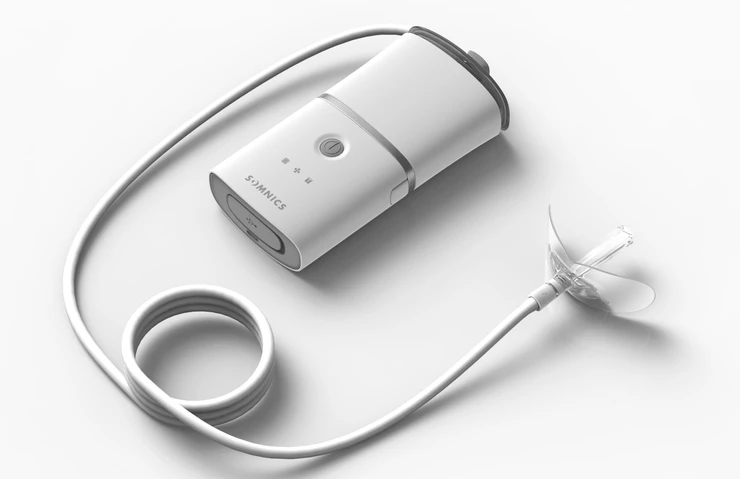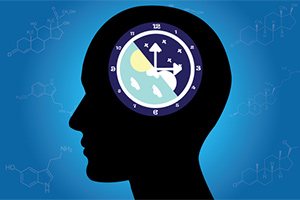Cognitive Behavioral Therapy for Insomnia (CBT-I) - Proven Techniques
Cognitive Behavioral Therapy for Insomnia (CBT-I) - Proven Techniques
Blog Article
Reliable Treatment Solutions for Taking Care Of Sleep Disorders and Enhancing Restful Rest
In the realm of medical care, the administration of sleep problems and the quest for relaxed sleep are pivotal elements of overall wellness. Effective therapy solutions use a multifaceted technique to deal with these challenges, varying from cognitive behavior interventions to alternative techniques that promote leisure and mindfulness. The exploration of different techniques, consisting of the integration of medicine and light treatment, opens up a world of possibilities in the quest of better sleep top quality. As we navigate the complex landscape of rest conditions and look for to enhance our sleep experience, a much deeper understanding of these therapy options may hold the trick to unlocking a much more rejuvenating and satisfying restorative journey.
Cognitive Behavior Modification for Insomnia (CBT-I)
Cognitive Behavioral Therapy for Sleeplessness (CBT-I) is an organized, evidence-based therapy strategy that focuses on attending to the hidden aspects adding to rest disruptions. This kind of treatment intends to change actions and ideas that worsen sleep problems, inevitably advertising healthy and balanced rest patterns. CBT-I commonly involves numerous vital parts, consisting of cognitive treatment, sleep limitation, stimulus control, and sleep hygiene education.
Cognitive therapy helps individuals identify and transform adverse idea patterns and ideas regarding sleep that may be impeding their capacity to fall or stay asleep. Rest constraint involves limiting the quantity of time invested in bed to match the individual's actual rest period, thereby enhancing sleep efficiency (sleep deprivation help). Stimulus control techniques aid establish a strong association between the bed and rest by encouraging individuals to visit bed only when sleepy and to avoid engaging in boosting tasks in bed
Additionally, sleep health education and learning concentrates on developing healthy rest routines, such as keeping a constant rest timetable, developing a relaxing bedtime regimen, and optimizing the sleep setting. By attending to these factors thoroughly, CBT-I offers an efficient non-pharmacological treatment for managing insomnia and enhancing overall rest high quality.
Sleep Hygiene Practices
Having developed the structure of cognitive restructuring and behavioral adjustments in resolving sleeping disorders via Cognitive Behavior modification for Insomnia (CBT-I), the focus currently moves towards checking out important Rest Health Practices for keeping optimal rest high quality and general health.
Rest hygiene practices include a series of behaviors and environmental elements that can dramatically impact one's ability to sleep and remain asleep throughout the evening. Consistent sleep and wake times, creating a relaxing bedtime regimen, and maximizing the sleep atmosphere by maintaining it dark, silent, and cool are important elements of good rest hygiene. Limiting direct exposure to displays prior to going to bed, avoiding stimulants like caffeine near to bedtime, and involving in regular exercise throughout the day can also promote better sleep high quality.
In addition, exercising leisure methods such as deep breathing exercises or reflection before bed can aid soothe the mind and prepare the body for sleep. By integrating these sleep hygiene techniques right into one's daily regimen, people can establish a healthy rest pattern that supports relaxed sleep and overall health.
Relaxation Strategies and Mindfulness
Applying relaxation methods and mindfulness techniques can play a crucial function in promoting a sense of calmness and promoting top quality sleep. insomnia therapy. These strategies aim to silent the mind, decrease stress and this page anxiety, and produce an optimum environment for peaceful rest. One commonly exercised method is deep breathing workouts, where individuals concentrate on slow, deep breaths to loosen up the mind and body. Modern muscle mass relaxation includes tensing and afterwards releasing each muscle team, advertising physical relaxation. Additionally, led images can help transport people to a serene place in their minds, assisting in stress and anxiety decrease and improving rest top quality.
Mindfulness techniques, such as reflection and yoga exercise, are likewise reliable in promoting leisure and improving rest. Mindfulness urges people to stay existing in the moment, releasing fret about the past or future. By incorporating these practices into a bedtime routine, people can signify to their bodies that it is time to prepare and unwind for rest. On the whole, incorporating leisure methods and mindfulness methods can significantly add to taking care of rest disorders and improving overall rest top quality.

Medicine Options for Rest Disorders
After exploring relaxation strategies and mindfulness practices as non-pharmacological treatments for enhancing rest top quality, it is necessary to take into consideration medication choices for people with sleep disorders. In situations where way of living adjustments and therapy do not supply enough alleviation, medication can be a valuable tool in handling rest disturbances.
Typically prescribed drugs for rest problems consist of benzodiazepines, non-benzodiazepine hypnotics, antidepressants, and melatonin receptor agonists. Antidepressants, such as trazodone, try this can be helpful for people with co-occurring anxiety and sleep disturbances - sleep therapy.
It is vital for individuals to consult with a healthcare company to figure out one of the most proper medicine choice based upon their details rest disorder and case history.
Light Therapy for Body Clock Guideline
Light therapy, likewise known as photo-therapy, is a non-invasive therapy method made use of to control body clocks and enhance sleep-wake cycles. This treatment includes direct exposure to brilliant light that resembles natural sunshine, which helps to reset the body's biological rhythm. By exposing people to certain wavelengths of light, typically in the early morning or night depending on the desired impact, light therapy can properly adjust the circadian rhythm to advertise wakefulness throughout the day and enhance peaceful rest during the night.
Research study has actually shown that light therapy can be specifically useful for people with circadian rhythm conditions, such as delayed rest stage syndrome or jet lag. It can also be handy for those experiencing seasonal depression (SAD), a sort of anxiety that commonly occurs during the winter season months when all-natural light direct exposure is lowered. Light therapy is typically well-tolerated and can be made use of combined with other therapy approaches for rest conditions to optimize results and boost total sleep top quality.
Final Thought
To conclude, effective therapy solutions for managing rest problems and boosting relaxing rest consist of Cognitive Behavioral Treatment for Sleeping Disorders (CBT-I), rest hygiene techniques, leisure strategies and mindfulness, drug options, and light therapy for circadian rhythm policy. These approaches can help people boost their sleep high quality and overall health. It is essential to talk to a doctor to determine one of the most ideal approach for addressing sleep issues.
As we browse the detailed landscape of rest problems and look for to improve our rest experience, a deeper understanding of these therapy solutions may hold the key to opening an extra rejuvenating and meeting restorative journey.
Rest constraint involves restricting the quantity of time spent in bed to match the person's reference actual rest period, thus increasing rest efficiency. Constant rest and wake times, producing a relaxing bedtime regimen, and enhancing the rest atmosphere by keeping it dark, peaceful, and cool are important components of excellent sleep health. Light therapy is usually well-tolerated and can be utilized in combination with other therapy techniques for rest conditions to optimize outcomes and enhance total rest high quality.

Report this page